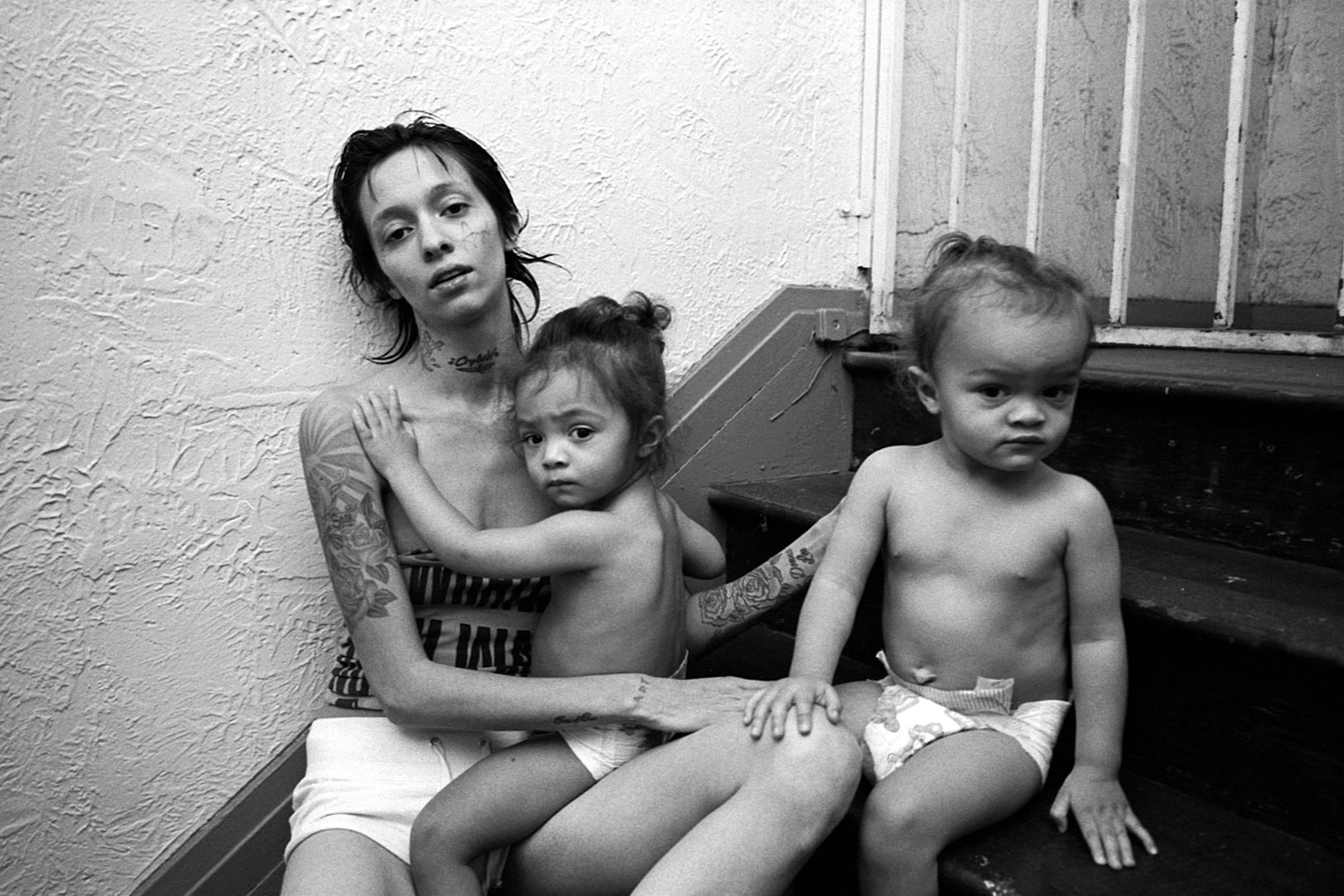Exposure: Abdul Kircher
In his photography, Abdul Kircher captures a complex vision of multiple truths, and addresses the difficulties and dangers that can lie in families, as well as the joys
We are living between two image worlds: the one we think we know and the one that exists. The former was organised by truth, fact and information — a society built upon the premise of image-equals-evidence. The new image world, catalysed by AI’s unsettling ability to conjure realness untethered from reality, operates differently.
A compelling image matters more to some than any indexical truth, and has the power to create new realities. Amongst this chaos, new questions are emerging: What happens to photography if we no longer trust in images? What are the implications for documentary? And how is this impacting how artists approach the medium?
Abdul Kircher’s photographic instinct is rooted in profound intimacy. He feels through picture making, grappling with life’s most challenging or complex situations, and never turning away. Take his series New Genesis, which, at its core, is about the tragedy of American capitalism, explored through the microcosm of his friend Sierra Kiss, a young mother who has been failed by the system.
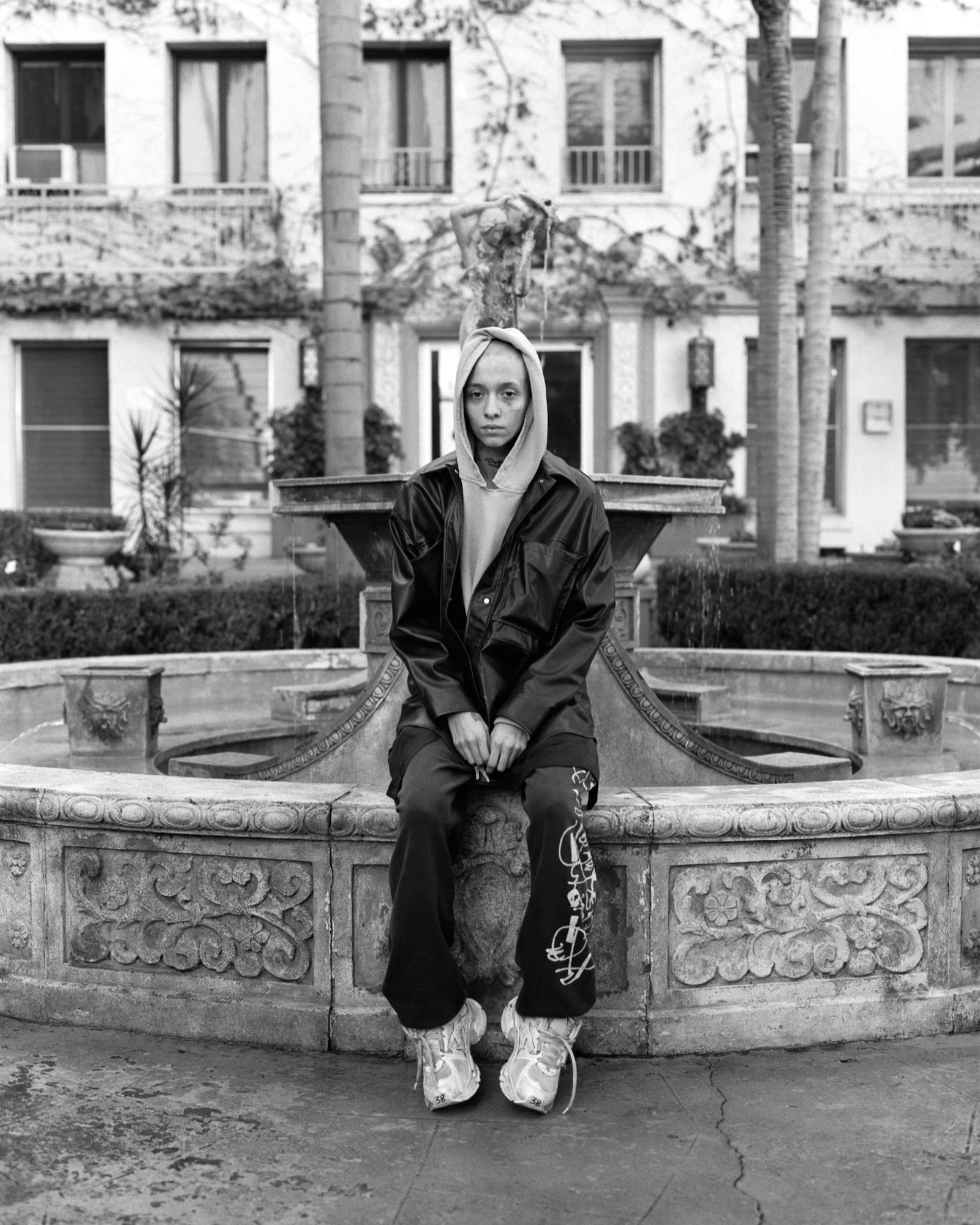

Kiss was constantly in battle with her surroundings. Her mother died from substance abuse, and her father was absent, leaving Kiss with no one she could count on. After seeking connection through a relationship that turned toxic, Kiss was more isolated than ever and a teenage mother of twins.
“The moment we first met, we just understood each other,” explains Kircher. “I was also born to a teenage mother and a father whom we had to escape. I witnessed every move my mother made to keep me safe and every obstacle that threatened us. While Sierra’s situation is different, the familiarity struck a chord with me.
“I was now an adult, witnessing the ways this mother tried to get out of an abusive partner. The police disregarded the danger she was in, and she desperately tried to provide her children with a home with no financial support. The system completely failed her, and the protection for women suffering at the hands of men was completely nonexistent.”
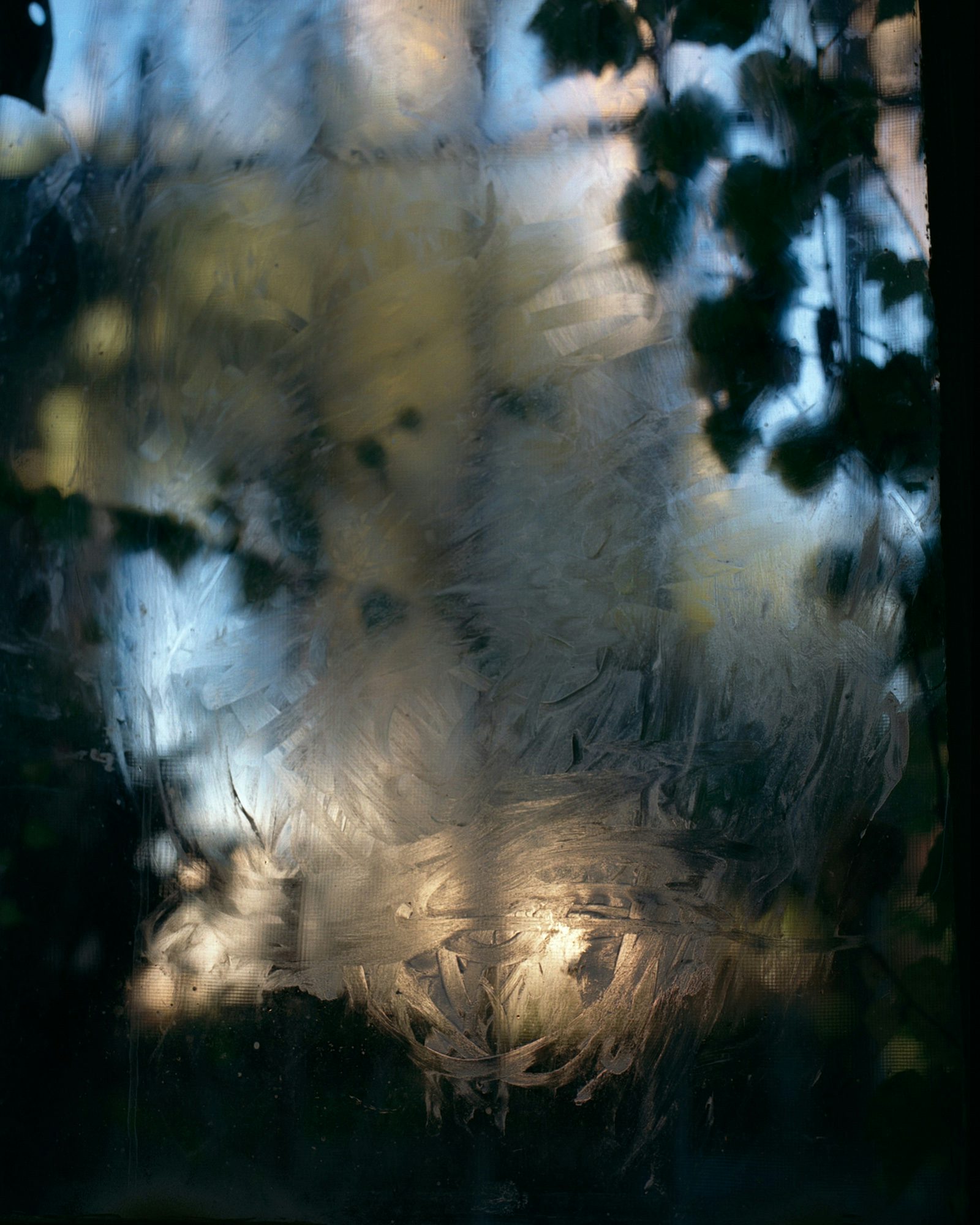
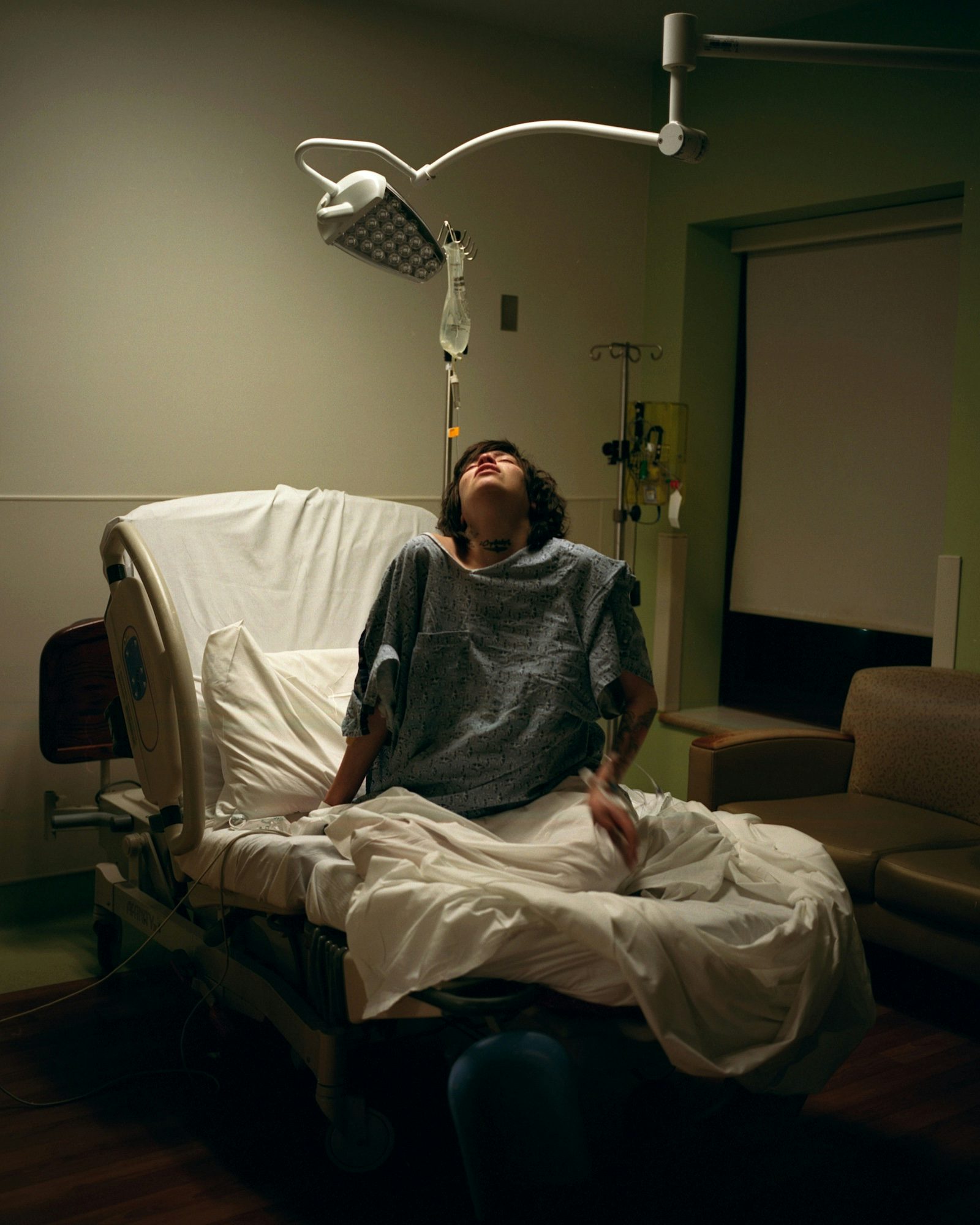
In New Genesis, Kircher and Kiss manage to translate the complexity of her situation — from the isolation of motherhood to how systems designed to keep us safe fail those most vulnerable. Tender moments of motherly love and the frenetic energy of young children are accompanied by chaos, fear and a profound urgency.
We witness Kiss in survival mode, shifting between home, hospital and church, as she searches for security for her young children. While Kircher’s portraiture is powerful and connected, it’s his quiet, abstract domestic details — windows laden with smudged fingerprints, long haunted corridors and the trace of dirty footprints imprinted in the bath — which relay the heightened emotions surrounding Kiss’ daily existence.
When your brain gets used to processing the world in a certain way, it becomes your primary method of communication — my brain only works in pictures
Kircher’s relationship with the camera is complicated. He began making images at 15, using photography as a shield when dealing with the trauma in his own familial dynamics. This act of metabolising hard things is the beating heart of his work. As he puts it, “When your brain gets used to processing the world in a certain way, it becomes your primary method of communication — my brain only works in pictures.”
As a photographer, Kircher is incredibly technical. He travels with six different cameras — ranging from a Leica to a microscopic film camera from the 80s used by dentists — each one offering him a different way of seeing. This impulse defines his visual language, creating a constellation of form and texture that is equally devoted to classical forms and radical experimentation.

Kircher is most renowned for his award-winning project Rotting from Within and the book of the same name, published by Loose Joints. At its core, the project traces his ten-year reacquaintance with his estranged father in a diary form that unearths his father’s history and a web of generational trauma.
With an almost relentless zeal, Kircher uses photography as an entry point for intimacy with his father and his Turkish heritage, reflecting psychological questions of identity, the glorification of violence and the myths of masculinity. Like many of Kircher’s works, the project is an assemblage of portraiture, observation, archival documents and diaries that capture the disorientating experience of unknowing those biologically closest to us, and how we do not get to choose the life into which we are born.
“It was difficult being exposed to this person that I wanted to bear no resemblance to, but constantly found myself having similar traits,” Kircher says about his father, who at the time was recently released from incarceration for selling drugs and attempted murder. “I spent a lot of time trying to fight that while also coming to terms with it.”

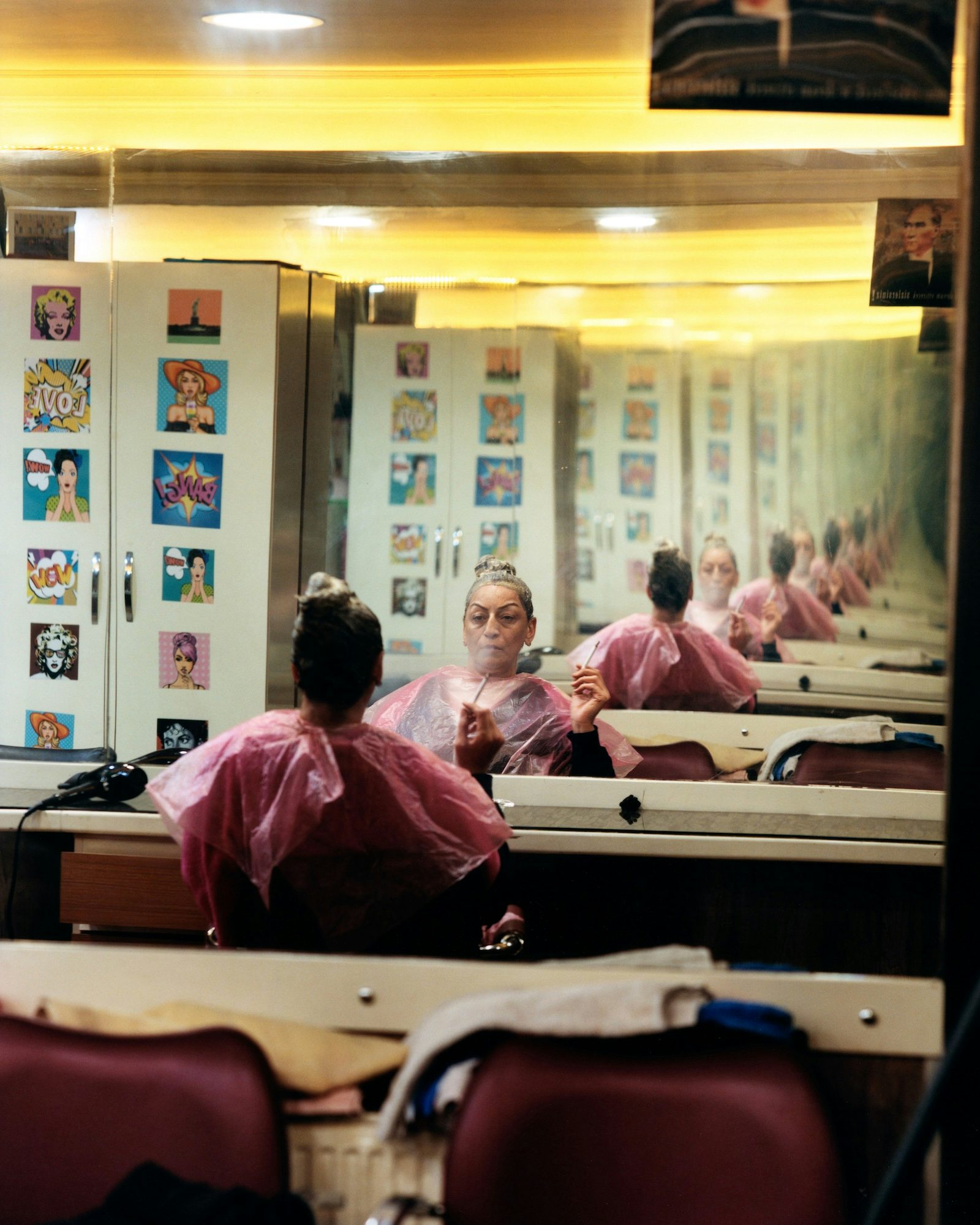
While the reconciliation initially looked hopeful, the more Kircher began to understand his father’s life and context, the more fraught their relationship became. “I think at first he thought photography was this hobby and it would pass, but over time he began to understand how photography functions in my life, and felt more threatened by it.”
Kircher’s answer to photography’s current inflection point is complexity. His work encapsulates multiple truths within a single frame, reflecting the age of dissonance and anxiety that pervades our world. He achieves this through intense and relentless feelings, speaking directly to the injustice of problems and relationships with no easy resolve.
If the tradition of documentary photography is to stand back, shoot down and feign objectivity, Kircher’s response is to push closer, shoot up and make his position abundantly clear.


